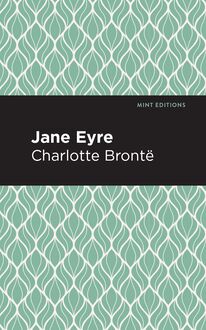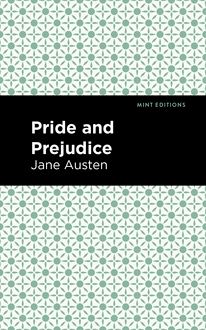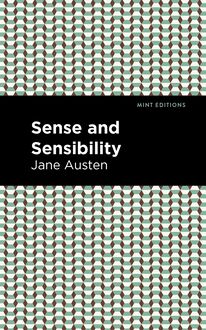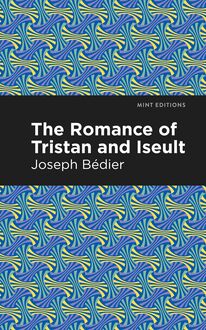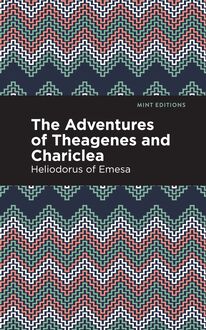-
 Univers
Univers
-
 Ebooks
Ebooks
-
 Livres audio
Livres audio
-
 Presse
Presse
-
 Podcasts
Podcasts
-
 BD
BD
-
 Documents
Documents
-
- Cours
- Révisions
- Ressources pédagogiques
- Sciences de l’éducation
- Manuels scolaires
- Langues
- Travaux de classe
- Annales de BEP
- Etudes supérieures
- Maternelle et primaire
- Fiches de lecture
- Orientation scolaire
- Méthodologie
- Corrigés de devoir
- Annales d’examens et concours
- Annales du bac
- Annales du brevet
- Rapports de stage
La lecture à portée de main

Vous pourrez modifier la taille du texte de cet ouvrage
Découvre YouScribe en t'inscrivant gratuitement
Je m'inscrisDécouvre YouScribe en t'inscrivant gratuitement
Je m'inscrisEn savoir plus
Vous pourrez modifier la taille du texte de cet ouvrage
En savoir plus

Description
Love’s Shadow (1908) is a novel by Ada Leverson. Having established herself as a journalist and short story writer, Leverson published her debut novel in 1907 to moderate acclaim. Entertaining and effortlessly witty, Leverson’s prose paints a stunning portrait of the Edwardian era, a time when hope and relative peace proved prosperous for many. Often compared to her close friend Oscar Wilde, Leverson, a pioneering Jewish woman, remains a unique and refreshing voice in English literature. Love’s Shadow is the first installment in her Little Ottleys trilogy, a series of novels exploring the romantic lives of a hilariously diverse group of friends. Edith and Bruce Ottley seem to have it all—a charming flat, a healthy child, and a group of entertaining friends. Although they are far from perfect—Bruce can be jealous and quite the hypochondriac at times—their marriage remains strong and their home remains a place of refuge to their frequently lovelorn comrades. Among a dizzying array of faces and names, Hyacinth Verney, Mrs. Eugenia Raymond, Cecil Reeve, and Lord Selsey stand out. Although Hyacinth loves Cecil, a match favored by his uncle Lord Selsey, the young man seems inexplicably smitten with the widow Eugenia, who has no interest in marrying again. Edith and Bruce do their best to make themselves hospitable while defending their home against the hostilities of love, but the hearts and minds of their eclectic guests prove difficult to assuage. Love’s Shadow is a humorous tale of romance and desire from Ada Leverson, an underappreciated novelist of the Edwardian era. With a beautifully designed cover and professionally typeset manuscript, this edition of Ada Leverson’s Love’s Shadow is a classic work of British literature reimagined for modern readers.
Sujets
Informations
| Publié par | Mint Editions |
| Date de parution | 28 mai 2021 |
| Nombre de lectures | 0 |
| EAN13 | 9781513288161 |
| Langue | English |
Informations légales : prix de location à la page 0,0500€. Cette information est donnée uniquement à titre indicatif conformément à la législation en vigueur.
Extrait
Love’s Shadow
Ada Leverson
Love’s Shadow was first published in 1908.
This edition published by Mint Editions 2021.
ISBN 9781513283142 | E-ISBN 9781513288161
Published by Mint Editions ®
minteditionbooks.com
Publishing Director: Jennifer Newens
Design & Production: Rachel Lopez Metzger
Project Manager: Micaela Clark
Typesetting: Westchester Publishing Services
C ONTENTS I. H YACINTH II. T HE A NXIETIES OF S IR C HARLES III. A NNE Y EO IV. T HE S OUND S ENSE OF L ADY C ANNON V. A P ROPOSAL VI. T HE L ITTLE O TTLEYS VII. H YACINTH ’ S L ITTLE D INNER VIII. L ORD S ELSEY IX. T HE P ECULIARITIES OF R AGGETT X. A M USICAL A FTERNOON XI. T HE T ROUBLES OF THE O TTLEYS XII. A T THE N ATIONAL G ALLERY XIII. M ORE OF THE L ITTLE O TTLEYS XIV. L ADY C ANNON ’ S V ISIT XV. R AGGETT IN L OVE XVI. A RCHIE XVII. B RUCE ’ S P LAY XVIII. H YACINTH W AITS XIX. E UGENIA XX. B RUCE HAS I NFLUENZA XXI. “E NGAGED ” XXII. T HE S TRANGE B EHAVIOUR OF A NNE XXIII. B RUCE C ONVALESCENT XXIV. T HE W EDDING XXV. A CCOUNTS XXVI. C ONFIDENCES XXVII. M ISS W RENNER XXVIII. A NNE R ETURNS XXIX. T HE I NGRATITUDE OF M ITCHELL XXX. M ITCHELL B EHAVES D ECENTLY XXXI. J ANE ’ S S ISTER XXXII. T HE D RIVE XXXIII. T HE Q UARREL XXXIV. A NNE AND E UGENIA XXXV. “T HAT W OMAN ” XXXVI. R AGGETT ’ S S ENSE OF H UMOUR XXXVII. S IR C HARLES XXXVIII. R EHEARSING XXXIX. T HE S OLUTION
I
H YACINTH
“There’s only one thing I must really implore you, Edith,” said Bruce anxiously. “ Don’t make me late at the office!”
“Certainly not, Bruce,” answered Edith sedately. She was seated opposite her husband at breakfast in a very new, very small, very white flat in Knightsbridge—exactly like thousands of other new, small, white flats. She was young and pretty, but not obvious. One might suppose that she was more subtle than was shown by her usual expression, which was merely cheerful and intelligent.
“Now I have to write that letter before I go,” Bruce exclaimed, starting up and looking at her reproachfully. “Why didn’t I write it last night?”
Edith hadn’t the slightest idea, as she had heard nothing of the letter before, but, in the course of three years, she had learnt that it saved time to accept trifling injustices. So she looked guilty and a little remorseful. He magnanimously forgave her, and began to write the letter at a neat white writing-table.
“How many g’s are there in ‘Raggett’?” he asked suspiciously.
She didn’t answer, apparently overtaken by a sudden fit of absence of mind.
“Only one, of course. How absurd you are!” said her husband, laughing, as he finished the letter and came back to the table.
She poured out more coffee.
“It’s a curious thing,” he went on in a tone of impartial regret, “that, with all the fuss about modern culture and higher education nowadays, girls are not even taught to spell!”
“Yes, isn’t it? But even if I had been taught, it might not have been much use. I might just not have been taught to spell ‘Raggett’. It’s a name, isn’t it?”
“It’s a very well-known name,” said Bruce.
“I daresay it is, but I don’t know it. Would you like to see the boy before you go?”
“What a question! I always like to see the boy. But you know perfectly well I haven’t time this morning.”
“Very well, dear. You can see him this afternoon.”
“Why do you say that? You know I’m going golfing with Goldthorpe! It really is hard, Edith, when a man has to work so much that he has scarcely any time for his wife and child.”
She looked sympathetic.
“What are you doing today?” he asked.
“Hyacinth’s coming to fetch me for a drive in the motor.”
His face brightened. He said kindly, “I am so glad, darling, that you have such a delightful friend—when I can’t be with you. I admire Hyacinth very much, in every way. She seems devoted to you, too, which is really very nice of her. What I mean to say is, that in her position she might know anybody. You see my point?”
“Quite.”
“How did you meet her originally?”
“We were school-friends.”
“She’s such a lovely creature; I wonder she doesn’t marry.”
“Yes, but she has to find someone else whom she thinks a lovely creature, too.”
“Edith, dear.”
“Yes, Bruce.”
“I wish you wouldn’t snap me up like that. Oh, I know you don’t mean it, but it’s growing on you, rather.”
She tried to look serious, and said gently, “Is it, really? I am sorry.”
“You don’t mind me telling you of it, do you?”
“Not at all. I’m afraid you will be late, Bruce.”
He started up and hurried away, reminding Edith that dinner was to be at eight. They parted with affectionate smiles.
When he had gone down in the lift, Edith took an inextensive walk through the entire flat, going into each room, and looking at herself in every looking-glass. She appeared to like herself best in the dining-room mirror, for she returned, stared into it rather gravely for some little time, and then said to herself: “Yes, I’m beginning to look bored.”
Then she rang the bell, and the nurse brought in a pretty little boy of nearly two, Huffily dressed in white, who was excited at the prospect of his great morning treat—going down in the lift. Speaking of him with some formality as Master Archie, she asked the nurse a few questions, which she mistakenly supposed gave that personage the impression that she knew all that there was to be known about children. When she was alone with him for a minute she rushed at him impulsively, saying, privately, “Heavenly pet! Divine angel! Duck!” in return for which he pulled her hair down and scratched her face with a small empty Noah’s Ark that he was taking out with him for purposes of his own.
When he had gone she did her hair up again in a different way—parted in the middle. It was very pretty, wavy, fair hair, and she had small, regular features, so the new way suited her very well. Then she said again—
“Yes, if it were not for Hyacinth I should soon look bored to death!”
H YACINTH V ERNEY WAS THE ROMANCE of Edith’s life. She also provided a good deal of romance in the lives of several other people. Her position was unusual, and her personality fascinating. She had no parents, was an heiress, and lived alone with a companion in a quaint little house just out of Berkeley Square, with a large studio, that was never used for painting. She had such an extraordinary natural gift for making people of both sexes fond of her, that it would have been difficult to say which, of all the persons who loved her, showed the most intense devotion in the most immoderate way. Probably her cousin and guardian, Sir Charles Cannon, and her companion, Anne Yeo, spent more thought and time in her service than did anybody else. Edith’s imagination had been fired in their school-days by her friend’s beauty and cleverness, and by the fact that she had a guardian, like a book. Then Hyacinth had come out and gone in for music, for painting, and for various other arts and pursuits of an absorbing character. She had hardly any acquaintances except her relations, but possessed an enormously large number of extremely intimate friends—a characteristic that had remained to her from her childhood.
Hyacinth’s ideal of society was to have no padding, so that most of the members of her circle were types. Still, as she had a perfect passion for entertaining, there remained, of course, a residue; distant elderly connections with well-sounding names (as ballast), and a few vague hangers-on; several rather dull celebrities, some merely pretty and well-dressed women, and a steadily increasing number of good-looking young men. Hyacinth was fond of decoration.
As she frankly admitted, she had rather fallen back on Edith, finding her, after many experiments, the most agreeable of friends, chiefly because in their intercourses everything was always taken for granted. Like sisters, they understood one another without explanation— à demi-mot .
W HILE E DITH WAITED IMPATIENTLY IN the hall of the flat, Anne Yeo, her unacknowledged rival in Hyacinth’s affections, was doing needlework in the window-seat of the studio, and watching Hyacinth, who, dressed to go out, was walking up and down the room. With a rather wooden face, high cheek-bones, a tall, thin figure, and no expression, Anne might have been any age; but she was not. She made every effort to look quite forty so as to appear more suitable as a chaperone, but was in reality barely thirty. She was thinking, as she often thought, that Hyacinth looked too romantic for everyday life. When they had travelled together this fact had been rather a nuisance.
“Why, when you call at the Stores to order groceries, must you look as if you were going to elope?” she asked dryly. “In an ordinary motorveil you have the air of hastening to some mysterious appointment.”
“But I’m only going to fetch Edith Ottley for a drive,” said Hyacinth. “How bored she must get with her little Foreign Office clerk! The way he takes his authority as a husband seriously is pathetic. He hasn’t the faintest idea the girl is cleverer than he is.”
“You’d far better leave her alone, and not point it out,” said Anne. “You’re always bothering about these little Ottleys now. But you’ve been very restless lately. Whenever you try to do people good, and especially when you motor so much and so fast, I recognise the symptoms. It’s coming on again, and you’re trying to get away from it.”
“Don’t say that. I’m never going to care about anyone again,” said Hyacinth.
“You don’t know it, but when you’re not in love you’re not yourself,” Anne continued. “It’s all you live for.”
“Oh, Anne!”
“It’s quite true. It’s nearly three months since you—had an attack. Blair was the last. Now you’re beginning to take the same sort of interest in Cecil Reeve.”
“How mistaken you are, Anne! I don’t take at all the same interest in him. It’s a totally different thing. I don’t really even like him.”
“You wouldn’t go out today if you were expecting him.”
“Yes, but I’m not… and he doesn’t care two straws about me. Once he said he never
Attention
En entrant sur cette page, vous certifiez :
- 1. avoir atteint l'âge légal de majorité de votre pays de résidence.
- 2. avoir pris connaissance du caractère érotique de ce document.
- 3. vous engager à ne pas diffuser le contenu de ce document.
- 4. consulter ce document à titre purement personnel en n'impliquant aucune société ou organisme d'État.
- 5. vous engager à mettre en oeuvre tous les moyens existants à ce jour pour empêcher n'importe quel mineur d'accéder à ce document.
- 6. déclarer n'être choqué(e) par aucun type de sexualité.
YouScribe ne pourra pas être tenu responsable en cas de non-respect des points précédemment énumérés. Bonne lecture !
-
 Univers
Univers
-
 Ebooks
Ebooks
-
 Livres audio
Livres audio
-
 Presse
Presse
-
 Podcasts
Podcasts
-
 BD
BD
-
 Documents
Documents
-
Jeunesse
-
Littérature
-
Ressources professionnelles
-
Santé et bien-être
-
Savoirs
-
Education
-
Loisirs et hobbies
-
Art, musique et cinéma
-
Actualité et débat de société
-
Jeunesse
-
Littérature
-
Ressources professionnelles
-
Santé et bien-être
-
Savoirs
-
Education
-
Loisirs et hobbies
-
Art, musique et cinéma
-
Actualité et débat de société
-
Actualités
-
Lifestyle
-
Presse jeunesse
-
Presse professionnelle
-
Pratique
-
Presse sportive
-
Presse internationale
-
Culture & Médias
-
Action et Aventures
-
Science-fiction et Fantasy
-
Société
-
Jeunesse
-
Littérature
-
Ressources professionnelles
-
Santé et bien-être
-
Savoirs
-
Education
-
Loisirs et hobbies
-
Art, musique et cinéma
-
Actualité et débat de société
- Cours
- Révisions
- Ressources pédagogiques
- Sciences de l’éducation
- Manuels scolaires
- Langues
- Travaux de classe
- Annales de BEP
- Etudes supérieures
- Maternelle et primaire
- Fiches de lecture
- Orientation scolaire
- Méthodologie
- Corrigés de devoir
- Annales d’examens et concours
- Annales du bac
- Annales du brevet
- Rapports de stage
